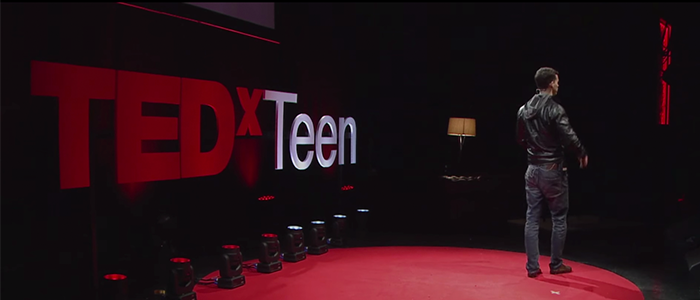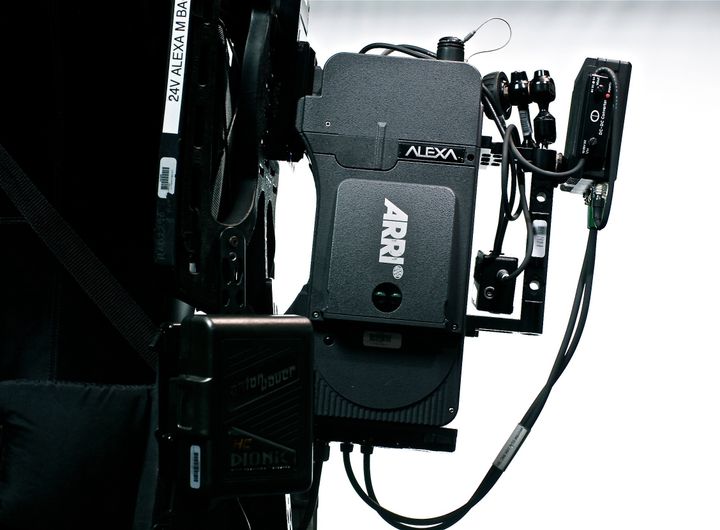A Practical Guide to Learn New Skills Fast, Even If You Don’t Know Where to Start

This post is brought to you by Connor Grooms. Connor has been a TEDx speaker and has been featured on Forbes and The Huffington Post. He is now the CEO and founder of BaseLang, a Spanish learning service that provides unlimited on-demand Spanish tutors for $99/month.
Connor recently released a free 7-day email course to help you learn Spanish faster than you ever thought possible. You can skip the research phase, because Connor has already done the heavy lifting for you. You can access his free email course on Spanish here.
Connor has used this exact framework to do some pretty ridiculously impressive things in a very short amount of time:
- Gain 26 pounds of muscle in one month, with negligible fat gain
- Became a conversational Spanish speaker in one month
- Helped a friend gain 15 pounds in three weeks
- Helped another friend gain 22 pounds in one month
- Helped several hundred Spanish students learn Spanish to a conversational level in 150 hours (roughly one month)
I’ll shut up now. Here’s Connor:
9:57am, July 2nd, 2015
Medellín, Colombia
*knock knock*
I rolled over, slid off my bed, pulled my pants on, and staggered over to the front door of my apartment.
“que mas parce”
“bien o no”
“pues bien”
I finished getting dressed, made a coffee, and sat down with Adrian.
Three hours later, we were done with my Spanish classes for the day, and we both left to get lunch.
But what the hell does this rather unremarkable morning have to do with rapidly acquiring new skills?
Everything.
Before I explain that though, why should you listen to me?
My (Not So Legitimate) Koalafications

Here is a full list of all my formal qualifications to give you advice about learning things quickly:
…
OK, great. Now that we have that out of the way, let’s look at what actually matters: my track record of (1) learning things quickly myself, and (2) helping other people do the same.
1. Both of my way over-ambitious one month challenges were successful. In November of 2014, after being skinny my entire life, I gained 26lbs in a month with almost no visible fat gain. And about a year ago, in June-July of 2015, I learned Spanish to a conversational level in a month, while shooting a now-hit documentary about it. I’ve also done other smaller, less crazy challenges like getting up early (after failing my entire life and being a natural night owl).
2. Following my system, I helped: a friend gain 15lbs in three weeks while maintaining the same body fat percentage, another reader and now friend gain 22lbs in a month (causing holy shit reactions from family), and now several hundred students learn Spanish to a conversational level in ~150 hours (measured in hours, not months, which is how language learning should be measured anyway) with my company BaseLang, which offers unlimited one-on-one Spanish classes for $99 a month.
I don’t tell you any of that to brag, because I guarantee I’ve failed at more skills and challenges than you’ve started.
But there are a few principles that every successful challenge of mine have in common. Principles that all of my failed challenges ignored.
Today, I want to share with you those principles.
What That Dull Story Had to Do With Learning Skills Really Fast
So what the hell did that rather unremarkable morning have to do with rapidly acquiring new skills?
Let me explain.
This is the fundamental principle behind not just learning things quickly, but achieving pretty much any goal.
It’s exactly how I approach my learning challenges AND running my business AND my health and fitness.
Step 1: Take an honest account of where you are.
Step 2: Figure out EXACTLY where you want to get to.
Step 3: Figure out how long you have to get there. The shorter the time period, the more time per day it will take, and the more hardcore your challenge will become (these are my personal favorite).
Step 4: Do research on how to get where you want to go. Find out the core principles the big experts all agree on, and look specifically at people who have (a) done what you want to do FAST (because doing things quickly requires you to cut away the BS and just focus on what works really well), and (b) have replicated their results in other people.
In many areas, someone has already done this work for you. For instance, you can listen to Matt if you’re an ambitious twenty-something that’s trying to figure out how to be in control of your own time and life. You can listen to Gary Halbert (one of the greatest copywriters of all time) if you want to learn how to write sales copy. You can listen to me if you want to learn Spanish quickly.
It’s very easy (and all too common) to get stuck in this research stage, in a constant search for the best solution, more information, more tips and tricks. Don’t do that. Figure out the core principles (read: the basic, usual boring things that aren’t exciting to write about. For instance, for gaining muscle, eating a LOT more. This isn’t sexy but it’s fundamental), and once you have those principles, move on. Don’t get stuck in research mode. You have to actually take action if you want results.
Step 5: Take where you want to go, where you are, and how long you have to get there and determine a daily input-based process that you follow.
Step 6: Actually do the shit.
I’m going to say step five again. It’s that important:
You have to determine a daily input-based process that you follow.
If you focus on the end goal and just try to “fight to get there”, you will not get anywhere. You have to break that down into something you can do each day that will get you closer to the end goal.
For instance, for my challenge to learn Spanish in a month, I determined that every day, I would:
- Take 3 hours of one-on-one private tutoring with a pro teacher
- Spend 30 minutes studying vocab using a smart flashcard app
- In the first ten days, spend two hours with a pronunciation course to get a good accent and improve my listening
That was my process. If each day I said, “today I’m going to push towards becoming conversational in Spanish!” and then did a bunch of random crap, I would have gotten nowhere. How do I know if I’ve succeeded for the day?
When you have a set process that you’ve pre-determined will get you to your goal if you execute it every day, then all you have to do is make sure you do your work for that day. It’s a simple yes/no question at that point: “did I do my work for today, or not?”
It’s important that this is input-based. Notice I didn’t say, learn X number of new words, or finish X number of modules in my pronunciation course. Results on any given day you can’t guarantee. But if it’s input-based – like a certain amount of time spent on a task – than you can control that.
Once you’ve built a daily process (based on the research you did, where you are now, where you want to be, and how fast you want to get there), achieving goals or learning new skills extremely quickly is as simple as following your pre-determined process each day.
The Principles That Make This Work
We just covered the most important principle when it comes to learning new skills or achieving any goal quickly.
But there are a few other ones that are important as well.
Focus is King.
Everything I have in my life is because of focus. Focus doesn’t mean committing to one career path for 30 years. It just means do one thing at a time.
If you are going to start an online business, don’t try to lose 15lbs or learn the guitar at the same time.Make one goal the focus of your life at a time. It may feel like you are deferring the other things you want to do, but by going one-by-one, you’ll actually get them all done faster.This was the hardest lesson for me to learn, and now that I embrace it, I make faster progress than ever before.
Control your environment.
This includes your friends, where you live, your apartment or home, or other external factors. Matt has been writing about this a lot recently.
If you want to live an extraordinary life, hanging around people who are OK with a normal one is going to debilitating. If you want to lose weight, than keeping unhealthy food in your home is going to make it much harder on you.
Sean Ogle from Location180 talks about this in point twenty of his “How to Get Everything You Want in Life” post.
Mindfuck yourself to change your identity.
There’s a continuum of behavior: inspiration (I want to do it), habit (I don’t need much willpower to do it), preference (I would rather do this than not do it), then identity (this is who I am).
The story we tell ourselves about who we are is extremely powerful.If you want to start eating healthy, then mindfuck yourself to believe, “I’m the type of person who loves this food. I find fast food disgusting. I would never be caught eating unhealthy food, that’s not me.” If you do this continually and well enough, you will start believing it deeply, and eating healthy will go from a challenge to just being yourself.
For instance, when I was learning Spanish, I told myself I was god’s gift to language learning, that I spoke Spanish well, and that I was the kind of guy who, when I set myself to a hardcore goal, that actually followed through. Whether or not these are true or not is irrelevant, they help you get to your goal.
I got this main idea (preference) from Tynan, one of the best bloggers on self development and living nomadically, and then took it one step further with the concept of identity.
The Big Picture: The Principles Applied to Language Learning
OK, so that was a lot of theory.
Let’s go step by step and see how this applies to one specific skill: learning a new language. I’ll walk you through my experience learning Spanish in a month for this.
Step 1
“Take an honest account of where you are.”
I know almost nothing.
Step 2
“Figure out EXACTLY where you want to get to.”
I want to become functionally conversational, meaning I can hold long, naturally flowing, meaningful conversations with people, even if I make mistakes or am missing words for things sometimes. I will test this with a conversation with a native speaker I’ve never met before at the end of the month.
Step 3
“Figure out how long you have to get there.”
I’m a crazy MOFO who gets off on doing things quickly, let’s do it in a month.
Step 4
“Do research on how to get where you want to go.”
I read several books, a bunch of blog posts, listen to a podcast or two, and dig into the research literature to figure out the core principles behind how to learn a language, specifically Spanish, very quickly.
Sidenote: if you’re also learning Spanish, I just released a free 7-day email course on how become conversational in a few months called, “Shortcut to Conversational”. It will let you skip the research phase, as I did the heavy lifting for you and share exactly what to do. You can check that out here.
Step 5
“Determine a daily input-based process that you follow.”
I will take 3 hours of one-on-one classes with a professional Spanish teacher every day from 10am to 1pm. I will study vocab using a smart flashcard app for 30 minutes every day. For the first ten days, I will do two hours of pronunciation training.
Step 6
“Actually do the shit.”
I will focus solely on this goal for the duration of the month. It will be the most important thing in my life, and doing my daily process will be non-negotiable. I will move to a Spanish-speaking country so that I’m surrounded by the language and forced to use it (this isn’t required, but helps). I will mindfuck myself into believing I’m amazing at language learning and am killing it with Spanish.
What Are You Going to Learn Next?
First, thank you for giving me your attention for so long! If you apply what you learned, these last ten minutes will be well worth it.
The only question is, what are you going to tackle next, and what will your daily process be?


